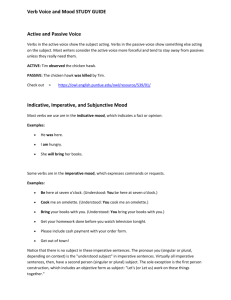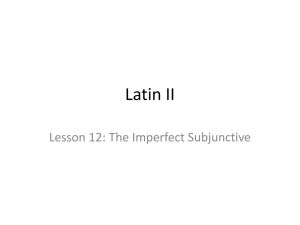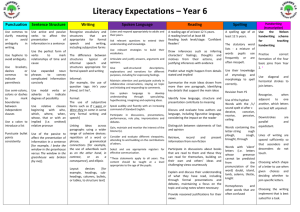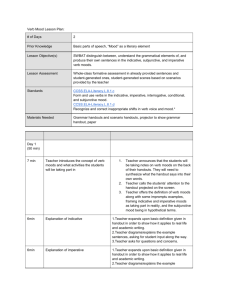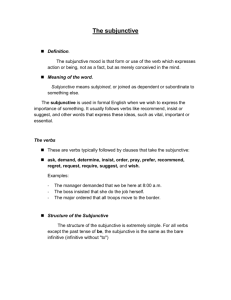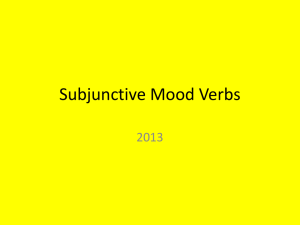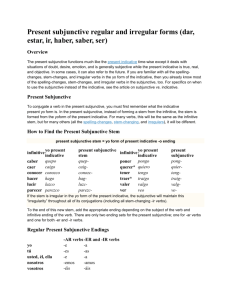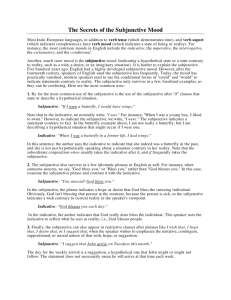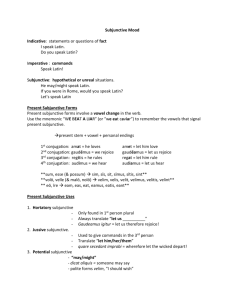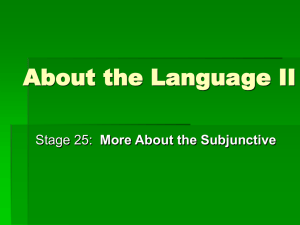Mood Selection in Early Complement Clauses of European
advertisement
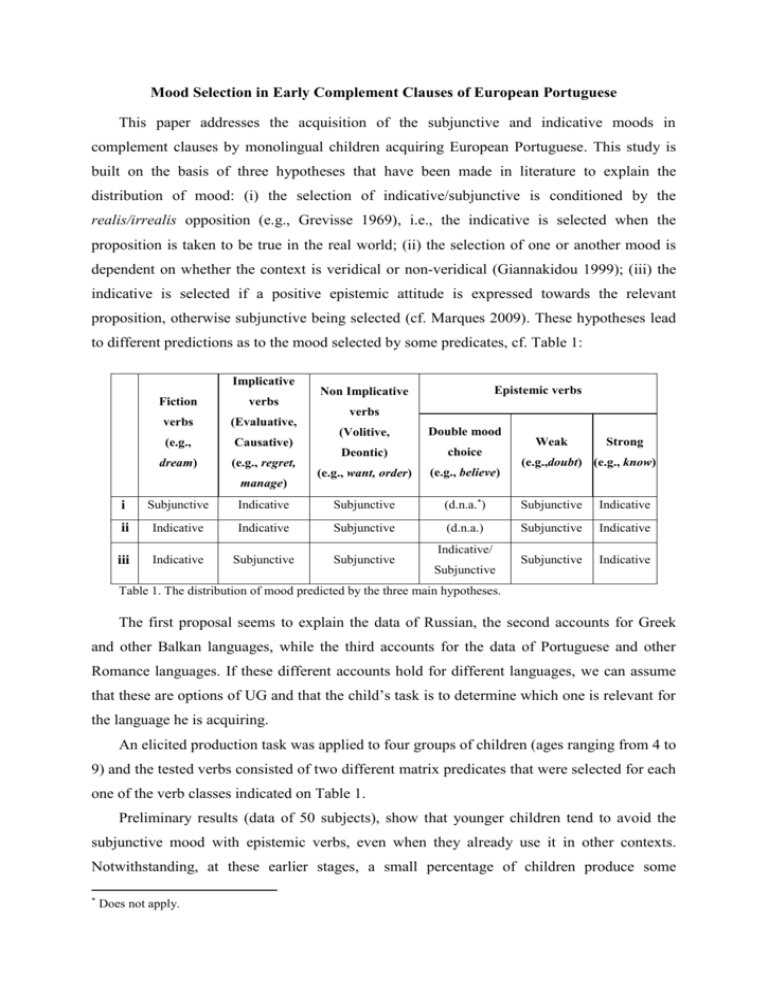
Mood Selection in Early Complement Clauses of European Portuguese This paper addresses the acquisition of the subjunctive and indicative moods in complement clauses by monolingual children acquiring European Portuguese. This study is built on the basis of three hypotheses that have been made in literature to explain the distribution of mood: (i) the selection of indicative/subjunctive is conditioned by the realis/irrealis opposition (e.g., Grevisse 1969), i.e., the indicative is selected when the proposition is taken to be true in the real world; (ii) the selection of one or another mood is dependent on whether the context is veridical or non-veridical (Giannakidou 1999); (iii) the indicative is selected if a positive epistemic attitude is expressed towards the relevant proposition, otherwise subjunctive being selected (cf. Marques 2009). These hypotheses lead to different predictions as to the mood selected by some predicates, cf. Table 1: Implicative Fiction verbs verbs (Evaluative, (e.g., Causative) dream) (e.g., regret, manage) Epistemic verbs Non Implicative verbs (Volitive, Double mood Deontic) choice (e.g., want, order) (e.g., believe) Weak Strong (e.g.,doubt) (e.g., know) i Subjunctive Indicative Subjunctive (d.n.a.*) Subjunctive Indicative ii Indicative Indicative Subjunctive (d.n.a.) Subjunctive Indicative iii Indicative Subjunctive Subjunctive Subjunctive Indicative Indicative/ Subjunctive Table 1. The distribution of mood predicted by the three main hypotheses. The first proposal seems to explain the data of Russian, the second accounts for Greek and other Balkan languages, while the third accounts for the data of Portuguese and other Romance languages. If these different accounts hold for different languages, we can assume that these are options of UG and that the child’s task is to determine which one is relevant for the language he is acquiring. An elicited production task was applied to four groups of children (ages ranging from 4 to 9) and the tested verbs consisted of two different matrix predicates that were selected for each one of the verb classes indicated on Table 1. Preliminary results (data of 50 subjects), show that younger children tend to avoid the subjunctive mood with epistemic verbs, even when they already use it in other contexts. Notwithstanding, at these earlier stages, a small percentage of children produce some * Does not apply. subjunctive forms with the matrix fictional verb sonhar (‘to dream’), which is not a possibility in the target grammar. References: Blake, R. 1983. “Mood Selection among Spanish Speaking Children, Ages 4 to 12”, The Bilingual Review, 10: 21-32. Giannakidou, A. 1999. “Affective dependencies”, Linguistics and Philosophy 22.4, 367-421. Grevisse, M. 1969. Le Bon Usage: cours de Grammaire Française et de Langage Française, 5th ed, Paris, Paul Gauthner, 1953. Marques, R. 2009. “On the selection of mood in complement clauses”, in L. Hogeweg, H. de Hoop and A. Malchukov (eds.), Cross-linguistic Semantics of Tense, Aspect, and Modality, John Benjamins, 179-204. Pérez-Leroux, A. T. 2001. “Subjunctive mood in Spanish child relatives: at the interface of linguistic and cognitive development”, in K. Nelson, A. Aksu-Koç e C. Johnson (eds.), Children's Language. Hillsdale, Lawrence Erlbaum Publishers, 11: 69-93. Santos, A. L. 2006. Minimal Answers. Ellipsis, Syntax and Discourse in European Portuguese, PhD Dissertation, Universidade de Lisboa.
